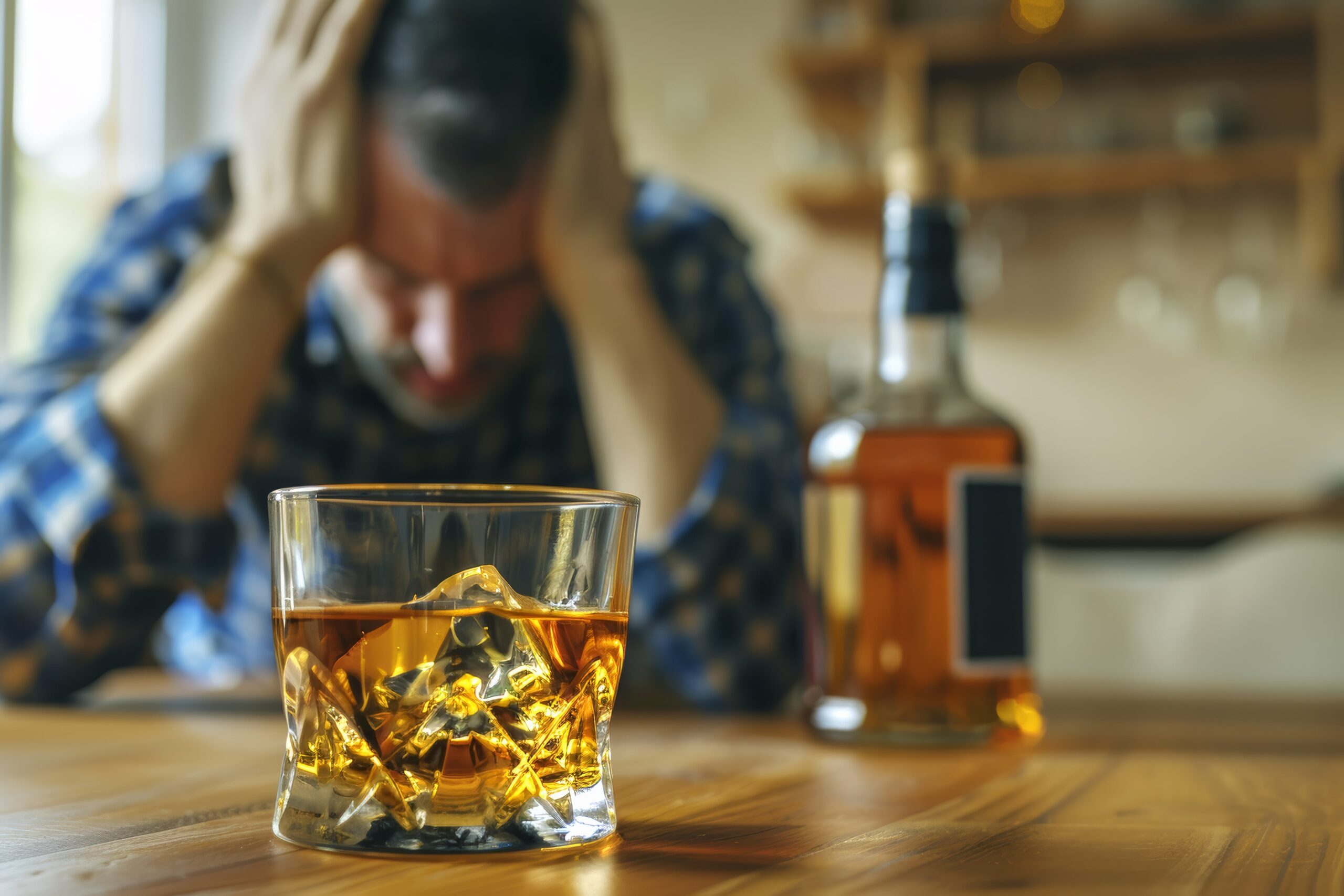Alcohol withdrawal is a severe condition that can be deadly if not properly managed. Understanding the mechanisms and risks associated with alcohol withdrawal is crucial for anyone dealing with alcohol dependence or supporting someone who is.
Understanding Alcohol Dependence
Chronic alcohol consumption leads to the body adapting to the presence of alcohol. This adaptation involves changes in the brain’s chemistry and function, primarily affecting the neurotransmitter systems. Alcohol acts as a depressant on the central nervous system, enhancing the effects of gamma-aminobutyric acid (GABA), an inhibitory neurotransmitter, and inhibiting glutamate, an excitatory neurotransmitter. Over time, the brain compensates for these effects by reducing GABA sensitivity and increasing glutamate activity.
The Withdrawal Process
When a person who is dependent on alcohol suddenly stops drinking, the brain’s compensatory mechanisms are abruptly unmasked. The reduced inhibitory influence of GABA and the heightened excitatory activity of glutamate create a state of hyperexcitability in the brain. This imbalance is the root cause of the withdrawal symptoms.
Symptoms of Alcohol Withdrawal
Alcohol withdrawal symptoms can range from mild to severe and include:
Mild Symptoms:
- Anxiety
- Irritability
- Tremors
- Sweating
- Nausea
- Headaches
Moderate to Severe Symptoms:
- Confusion
- Rapid heart rate
- High blood pressure
- Fever
- Hallucinations (auditory, visual, or tactile)
Severe Symptoms (Delirium Tremens – DTs):
- Severe confusion
- Significant agitation
- Hallucinations
- Delirium
- Seizures
How Long Does Alcohol Withdrawal Last?
Alcohol withdrawal symptoms can last from a few days to several weeks, depending on the severity of dependence and individual factors. Typically, mild to moderate symptoms begin within 6 to 12 hours after the last drink, peak around 24 to 72 hours, and start to improve within 4 to 5 days, while severe symptoms, including delirium tremens, can persist for up to a week or more.
Why is Alcohol Withdrawal Deadly?
Alcohol withdrawal is a critical medical condition that can turn deadly if not managed appropriately. Understanding the reasons behind its life-threatening nature is essential for anyone dealing with alcohol dependence or supporting someone through recovery.
The specific symptoms that can make alcohol withdrawal deadly include:
- Seizures: One of the most dangerous aspects of alcohol withdrawal is the risk of seizures. These can occur within 6 to 48 hours after the last drink and can be life-threatening if not managed properly. Seizures result from the brain’s hyperexcitability due to the imbalance between GABA and glutamate.
- Delirium Tremens (DTs): DTs are the most severe form of alcohol withdrawal and typically begin 48 to 72 hours after the last drink. DTs are characterized by severe confusion, autonomic hyperactivity (e.g., rapid heart rate, high blood pressure), and hallucinations. The mortality rate for untreated DTs can be as high as 37%, but with proper medical treatment, it drops to 1-4%.
- Cardiovascular Complications: The hyperadrenergic state caused by withdrawal can lead to significant cardiovascular stress, resulting in increased heart rate and blood pressure. This stress can exacerbate pre-existing heart conditions or lead to arrhythmias, heart attacks, or strokes.
- Electrolyte Imbalances: Vomiting, sweating, and diarrhea, common during withdrawal, can lead to severe dehydration and electrolyte imbalances. These imbalances can affect heart function and lead to complications like arrhythmias.
The Importance of Medical Supervision
Given the potential severity and fatality of alcohol withdrawal, medical supervision is critical. Detoxification in a controlled environment allows for the monitoring and management of symptoms.
Treatments may include:
- Medications: Benzodiazepines are often used to manage withdrawal symptoms and prevent seizures. Other drugs might be prescribed to manage specific symptoms like high blood pressure or nausea.
- Hydration and Nutritional Support: Ensuring the patient remains hydrated and receives adequate nutrition helps mitigate some withdrawal complications.
- Monitoring: Continuous monitoring of vital signs and symptoms allows timely intervention if complications arise.
Alcohol withdrawal is not something to be taken lightly. Its potential to cause severe and fatal complications necessitates medical intervention. However, proper medical care can significantly reduce the risks associated with withdrawal and pave the way for a safer, more successful recovery journey.
Lifestyle Tips To Help Improve The Process
Navigating through alcohol withdrawal is challenging, but certain lifestyle adjustments can significantly aid in managing symptoms and promoting recovery. Here are some practical tips to help improve the withdrawal process:
Stay Hydrated & Eat A Balanced Diet
- Drink Plenty of Water: Hydration helps manage withdrawal symptoms like headaches, nausea, and dizziness.
- Nutrient-rich foods: Focus on a diet rich in vitamins and minerals. Fresh fruits, vegetables, lean proteins, and whole grains can help restore nutritional deficiencies caused by prolonged alcohol use.
Rest and Sleep
- Prioritize Sleep: Quality sleep can be challenging during withdrawal, but it’s essential for recovery. Create a relaxing bedtime routine and ensure your sleeping environment is comfortable. Take breaks as needed.
Stay Active
- Light Exercise: Gentle activities like walking, yoga, or stretching can help reduce anxiety and improve mood.
Manage Stress
- Hobbies: Engage in activities you enjoy to distract yourself and promote a positive mindset.
Avoid Triggers
- New Routines: Establish new, healthy routines to replace habits associated with drinking.
Focus on Mental Health
- Therapy: Consider therapy or counseling to address underlying issues related to alcohol use and develop coping strategies.
Plan for the Future
- Set Goals: Establish short-term and long-term goals for your recovery and well-being. Commit to maintaining a healthy lifestyle beyond withdrawal to support ongoing recovery and prevent relapse.
Remember, the path to recovery is a marathon, not a sprint. With the proper support and treatment, it is possible to overcome the challenges of alcohol dependence and withdrawal. Contact us today to learn more.


 Verify Insurance
Verify Insurance
 Toll Free Call
Toll Free Call